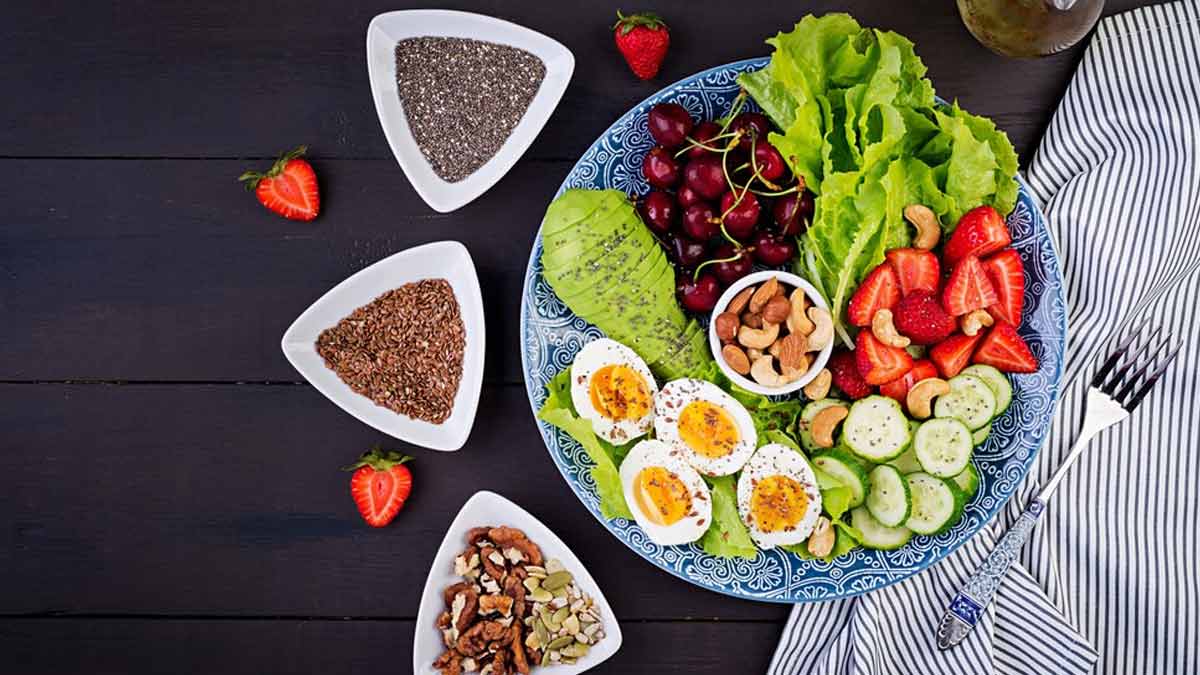
It is essential to eat right for lactating mothers to provide nutrition for your newborn. A well-balanced and nutrient-rich diet, not only supports the mother's health but also ensures the baby receives essential nutrients through breast milk for growth and health. However, there are some do’s and don’ts which must be followed by new mothers for their young kids. We spoke to our expert Dr Kavita Mehta, Physiotherapist, Prenatal Expert, Childbirth Educator, Lactation Counsellor, Rosewalk Healthcare, Delhi, who shared insights on the breastfeeding diet and what you should eat and avoid.
What To Eat During Lactation

According to the Journal of Nutritional Science (JNS), The eating patterns of breastfeeding mothers can affect the nutritional makeup of human milk, which in turn affects the nutrients that nursing babies absorb.
As per the Centers for Disease Control and Prevention (CDC), breastfeeding mothers typically require increased caloric intake to fulfil their nutritional requirements during lactation.
Dr Mehta added, “It is recommended to add 330-400 kilocalories (kcal) per day for well-nourished breastfeeding mothers, compared with the amount they were consuming before pregnancy.”

Here is what you should eat while lactating, as listed by Dr Mehta:
- Protein foods, such as meat, poultry, fish, eggs, dairy products, beans, nuts, and seeds should be consumed 2-3 times a day.
- Adequate calcium intake is vital for the development of the baby's bones and teeth, which includes dairy products, plant-based milk, leafy green vegetables, nuts, and tofu in the diet.
- Lactating women often experience a depletion of iron, so it's crucial to replenish these stores by incorporating lean meats, beans, lentils, and dark leafy greens.
- Omega-3 fatty acids support healthy brain and eye development in the baby, including fatty fish like salmon, walnuts, chia seeds, and flaxseeds in your diet to provide a healthy dose of these essential fats.
- Whole grains, fruits, vegetables, and legumes are excellent sources of fibre, which aids in digestion and helps prevent constipation.
- Staying well-hydrated is essential for milk production.
Also Read: Breastfeeding Vs Bottle Feeding: Expert Lists The Differences And What's Better
What To Avoid Eating During Lactation

Here is what you should avoid eating while lactating, as listed by the expert:
- Caffeine and Alcohol: It's advisable to limit caffeine as excessive amounts can lead to irritability and sleep disturbances.If you wish to drink alcohol, wait 2-3 hours after each serving, before breastfeeding or pumping. Alcohol does not stay in the milk and is removed as the blood alcohol levels go down.
- High-Mercury Fish: While fish is a great source of omega-3 fatty acids, avoid high-mercury fish, such as albacore tuna, swordfish, shark, and king mackerel.
- Highly Processed Foods: Limit the intake of highly processed and spicy foods, as they can sometimes cause discomfort for the mother and the baby.
- Allergenic Foods: It may be wise to be cautious with common allergenic foods, such as nuts, dairy, and eggs. Monitor the baby for any signs of allergic reactions and consult a medical expert if necessary.
- Excessive Gas-Inducing Foods: Some babies may be sensitive to certain gas-inducing foods in a mother's diet, such as cabbage, broccoli, onions, and beans. Monitor the baby's reactions and adjust the diet accordingly.
Also Read: Breastfeeding After 35: Expert List Tips to Keep Your Baby Healthy
Bottomline
Dr Mehta concluded, “Maintaining a well-balanced diet for lactating women is vital, ensuring both their well-being and the optimal growth and development of their infants. Strict diets and skipping meals are not recommended because one could miss out on vital nutrients. Always consult the doctor for personalised advice based on individual health conditions and circumstances. With the right diet, mothers can nourish their newborns and experience a healthy motherhood journey.”
[Disclaimer: This article contains information provided by an expert and is for informational purposes only. Hence, we advise you to consult your expert for a dietary plan tailored to your needs and body type.]
Also watch this video
How we keep this article up to date:
We work with experts and keep a close eye on the latest in health and wellness. Whenever there is a new research or helpful information, we update our articles with accurate and useful advice.
Current Version